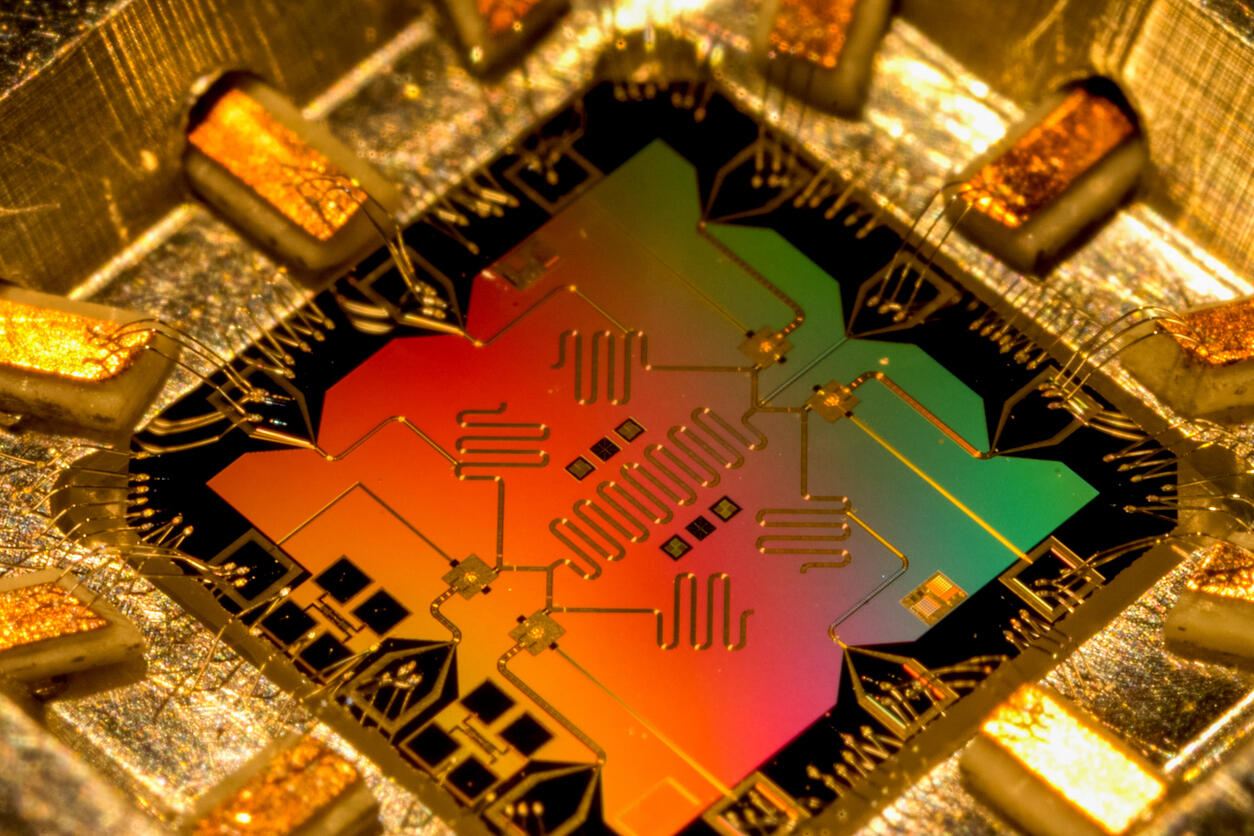Quantum news: IonQ and Accenture announce partnership and a startup uses diamonds as qubits
Quantum computing moves farther into the mainstream with global consulting deal and new hardware that could sit in a server room.

Quantum computing is accelerating even faster as with a new consulting partnership and new hardware design that can work in normal conditions. Accenture and IonQ announced this week a new partnership to bring quantum computing to the consulting company’s clients around the world. Meanwhile, in Australia, Quantum Brilliance plans to use $9.7 million in seed funding to move quantum computing out of custom-built environments and into server rooms.
These developments will make quantum computing more of a reality for more businesses both in terms of practical applications of the technology and the ability to implement it.
The plan for the new consulting deal is to help businesses experiment with quantum solutions for mission-critical business problems.
“Quantum computing will create unprecedented opportunities, and we want Accenture clients to be ready to seize them,” Marc Carrel-Billiard, senior managing director and Technology Innovation lead at Accenture, said in a press release.
“IonQ’s systems can play a critical role in support of a company’s quantum journey, and we want to help our clients experiment with quantum and understand how it could potentially impact their business, as well as their broader industry,” Carrel-Billiard added.
IonQ CEO and chairman Peter Chapman said in a press release that Accenture is a right partner to help accelerate a quantum future.
“The quantum computing revolution will reshape industries from top to bottom, and it’s imperative that businesses prepare for it now,” Chapman said.
SEE: Expert: Now is the time to prepare for the quantum computing revolution
IonQ and the University of Maryland also announced a new quantum lab at the university. Scientists and students will have hands-on access to a commercial-grade quantum computer as part of the university’s $300 million investment in quantum science.
Diamonds and quantum computing
IonQ is not the only quantum company in the news lately. A quantum startup based in Germany and Australia announced it has raised $9.7 million in seed funding to expand its use of synthetic diamonds as qubits. Quantum Brilliance also just hired Mark Mattingley-Scott, a 30-year veteran of IBM, to run business development operations in Europe.
Andrew Horsley, Marcus Doherty and Mark Luo founded the company based on research from the Australian National University. The founders plan to use the funds to increase the power of quantum computers, reduce the size of the machines and demonstrate the practical applications of the technology.
The company launched its Gen 1 accelerator earlier this year and is designed to be deployed in clusters. According to the company, large-scale, interconnected quantum accelerators will be able to analyze complex systems of systems such as molecular dynamics.
Quantum Brilliance is taking a different approach to creating qubits by using synthetic diamonds to miniaturize quantum computers. The two most common approaches to quantum computing are superconducting transmon qubits and trapped-ion technology.
The company’s design uses a defect in synthetic diamonds that results in a missing carbon atom with a rogue nitrogen atom located nearby. These “nitrogen-vacancy centers” serve as qubits. This design means the machines can run at room temperature in any environment from a data center to a car. This is a distinct difference from quantum computers from IBM and other industry leaders, which require specialized environments to operate.
Quantum Brilliance has an edge in form factor but has some work to do to catch up in performance. The gate speeds are slower than superconducting qubits but faster than trapped ions. The coherence of diamond qubits is lower than trapped ion qubits. The company is building quantum accelerators which have two qubits, compared to other systems that have many more.
In July, Pan Jianwei, a physicist at the University of Science and Technology of China in Hefei revealed a 66-qubit quantum computer called Zuchongzhi. His paper has not been peer-reviewed yet but he claims the computer completed a task considered a benchmark of quantum performance in 70 minutes. That could be a new milestone in quantum supremacy beyond the advance Google claimed in 2019 with its 53-qubit Sycamore computer.
Honeywell announced a 64-qubit computer last year. D-Wave announced a 5,000-qubit machine last fall also.
IBM has a 5-qubit Quantum Canary processor and a 27-qubit Quantum Falcon processor. The company’s roadmap includes a 127-qubit machine by the end of this year.
Rigetti Computing has its own approach as well: linking multiple chips together to boost the overall qubit count. The company’s roadmap aims to hit an 80-qubit computer by the end of this year.
Also see
For all the latest Technology News Click Here
For the latest news and updates, follow us on Google News.

